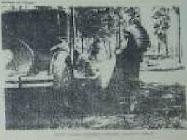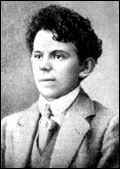Walking to work this morning, I started sketching out very haphazardly some general comments on the "situation of poetry" in the United States. An heir's fool-land, if there ever was. Then I get into the office & learn that a fine, much-loved, old-fashioned poet of Ireland, Seamus Heaney, has died. Rather put the kibosh to my nascent burbling.
But since it's a quiet day here before Labor Day weekend (Edwin Honig was born on Labor Day, in 1919), maybe I'll ramble on anyway.
With so much marvelously shallow, vulgar & pretentious nattering "about" poetry now, on Twitter, & Facebook, & social media et al., it seems a crime to add to the noise. But I have a long record of such criminal foolishness here on HG Poetics myself, so I might as well continue scrounging in my rut.
A shibboleth about contemporary American poetry : it's balkanized, divided into camps, a babel of quarreling discourses. & the cliche-corollary is that poets themselves are to blame : their petty vanity & narcissism, their "arty" personalities. I disagree. I think there are more impersonal social-historical factors in play, which tend to push the "situation of poetry" in America to the edge of disorientation.
Being a poet in vast, open-society America is more confusing than difficult. Compared to the American scene, the traditional role of the poet in, say, Paris, London, Dublin, Berlin, Rome, or even Moscow/Petersburg, seems rather uncomplicated. In those places, if you are talented, intelligent, bohemian, perhaps politically forthright, you will fit right in : you will be recognized for what you are, you will find a place at the cafe table.
It's different here. Without getting too schematic about it, let me suggest some of the clashing dimensions involved.
First, you have a nation which is deeply "prosaic" in its bones. Anti-poetic in many ways. It goes back to the practical, pragmatic character of an immigrant, invading people, engaged with a wilderness, whose real natives (the Native Americans) are not them. The American land in this sense is a kind of stepmother, rather than motherland, to the newcomers. Secondly, it goes back to the very old Protestant-Puritan mind... the struggle to distance that mind from its medieval/Catholic roots. The doctrine of "sola scriptura" (Scripture only) had a sort of dual impact : first, an intent focus on the written word (always good for poetry); second, a tendency to build whole cultural forms & communities - the forms of Protestant fundamentalism - around heterodox interpretations of the Bible. What this meant was that the scriptural culture of the Bible become so important, so central, that secular expressions of art became exiled, somewhat suspect. So for poetry, we have sort of a double exile from our own environment : the stepmotherly native earth, and the doctrinaire Puritan inheritance. (This is not intended to judge or to blame the Puritans, who are my own ancestors : it is only a very reductive abstraction, for the sake of argument).
One consequence of this, & a phenomenon which seems ubiquitous today, is the strenuous effort by poets and the "poetry community" to compensate for this ingrained dissonance - by trying to acculturate poetry to America programmatically. There are all sorts of efforts to win over the general public to poetry : the foremost at the moment being the multifarious projects of the Poetry Foundation, which seems bent on injecting poetry into the veins of America (perhaps using some special inoculation needles supplied by Lilly Pharmaceuticals). More importantly, the constellation of MFA degree programs in Creative Writing are there to encourage, to jump-start a decent cultural presence for poets & poetry in this nation of engines & rust.
Then there is the massive horde of established American poets, and the many public institutions and awards which honor them. We have Poets Laureate, we have the Societies and the Medals, we have the prestigious magazines which publish the honored, great, well-known poets, who've been around now for decades, whom we all know & love, & repeatedly praise, quote, emulate.
Then, of course, we find yet another confusing element & factor of the current scene : what I would call the "establishment-experimentalists". These are the heirs of modern & post-modern waves of the European avant-garde, the believers in progressive, politically-charged poetry, the inventors of ever-new and ever more-scintillating technical innovations - poured forth as from some chemistry lab on the top floor of a Madison Avenue office suite, directly into the English departments of our major universities.
So we have this huge jumble of contrastive factors and forces in play. On top of this we have hundreds, maybe thousands, of quite talented and devoted poets, whose actual work gives the lie to any reductive bracketings or explanations - mine or anyone else's. They are makers of original art, good poems. They will not be judged by me, or anyone - will not be pigeonholed.
So much confusion - can't get no relief! mopes Bobbi Dylan Hendrix. And the most bewildering dimension of this scene emerges with the nagging sense that, underneath all the promotional & organizational & advocational & educational efforts on behalf of American poetry in America, there is... still something missing, some essential element. What is it?
Here's my suggestion. At the deep root of American culture lies a problem, not a solution : an unresolved conflict, a subliminal unease. Thus the situation of poetry and the poet in America is Janus-faced, as if resting on the razor of a double-edged sword. America's attitude toward poetry is a cloudy reflection of America's relationship to its native land (the American soil). It will never be "fixed" - it will never be "solved" - it will never be "celebrated" - not finally, not completely, anyway - without an agon, without a dramatic struggle. America does not want to be comfortable with its poets and its poetry - because America is not (yet) comfortable with itself. Thus, "established American poets" is a kind of awkward oxymoron. "America's best-loved poems" has a somewhat hollow ring to it. The game is not over. The drama is not foretold - it is unfolding. Poets and poetry are a part of this historical mystery : but their role is excruciating, unsettled. And this is a reflection of the "trouble in mind" at the heart of the national experience. It is a work-in progress : an unwritten poem. The great iconoclasts of the American Renaissance - Whitman, Melville, Dickinson, Poe - understood this in their bones, expressed it in their work. & they are our true inheritance, signs pointing the way (into the wilderness).
8.30.2013
Subscribe to:
Post Comments (Atom)



No comments:
Post a Comment